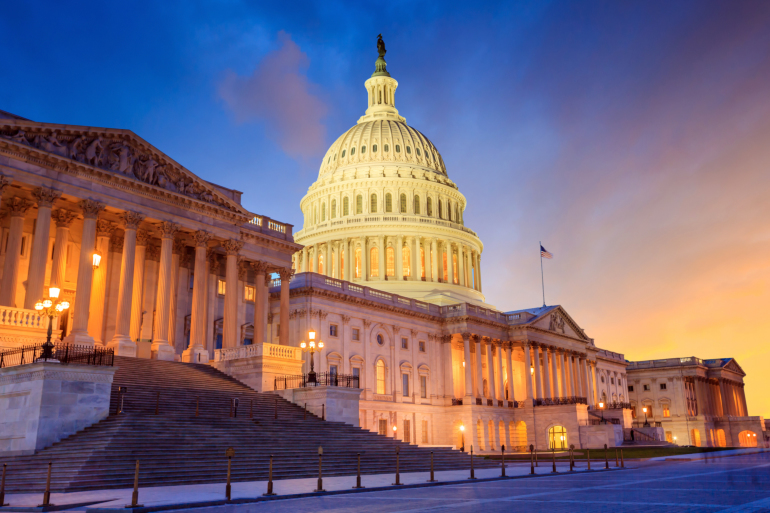Legal Update
Dec 23, 2020
Yes, I Know it’s a Pandemic, But What About ERISA?!?!?!?
Benefits Implications in Employer-Sponsored COVID Vaccine Programs
Synopsis: Now that we have two approved vaccines (and several more on the horizon) employers are starting to explore whether they should require their employees to get vaccinated in order to report to work. There has been a lot of discussion on this topic by our labor & employment brethren and we direct you to those articles here and here for information about the extent to which an employer should implement a vaccine policy. This update explores the significance of mandating a vaccine versus offering voluntary vaccine coverage, and how that distinction may implicate additional requirements under ERISA.
Background: Why ERISA May Apply to Vaccination Programs
When employers pay for the provision of medical care to their employees, they are offering group health plan coverage (insured or self-funded) and they create an ERISA-governed welfare benefit plan. Group health plans are also subject to other federal statutes such as the Internal Revenue Code, the Affordable Care Act and the recent CARES Act. [See our post here on the CARES Act and vaccine requirements.] This framework leads to two critical questions in analyzing a vaccination program under ERISA:
1. Is an Employer-Paid Vaccine Program “Medical Care”?
The EEOC has recently opined that the vaccine itself is not a medical examination. Fair enough; we didn’t think so. But, the questions that inevitably accompany the administration of the vaccine -- for example, questions about allergies or auto-immune disorders -- would constitute a medical examination and, therefore, must be job related. This doesn’t directly impact the analysis of whether we are dealing with a health plan here, but does highlight the government’s view that there is some aspect of the delivery of medical care present.
2. If the Vaccine Program is for the Employer’s Benefit (i.e., mandatory) does ERISA still apply?
Arguably though, a mandatory program, as opposed to a voluntary inoculation program, is not offered for the employee’s own health. Section 3(1) of ERISA defines the term "employee welfare benefit plan" as a plan maintained by an employer to the extent it “is established or is maintained for the purpose of” providing medical benefits or benefits in the event of sickness. If an employee is receiving a COVID-19 vaccine through a mandatory program, arguably, it is not “for the purpose of” providing a medical benefit. That is an incidental benefit. Instead the vaccine is being provided to ensure the health and safety of those around the employee --
co-workers, clients, customers or vendors. Under this argument, employers providing the vaccine through a mandatory program would not need to do so through an ERISA benefit plan. The DOL adopted this view in a nearly 25-year-old advisory opinion, albeit on the topic of mandatory workplace drug testing programs.
Why this Matters: Significance of ACA Requirements
The above questions are significant because the Affordable Care Act requires that all group health plans comply with certain requirements, including offering no-cost preventive services (e.g., colonoscopies, mammograms, etc.). A stand-alone COVID vaccination program, if offered on a voluntary basis, would not comply with those mandates. Accepting that the regulatory agencies might afford enforcement discretion given the circumstances, the IRS/DOL and HHS did provide a potential roadmap to “cure” this (technical) noncompliance in guidance issued earlier this year involving COVID testing.
There, the agencies seemed to suggest that COVID testing would be considered a group health plan, subject to the ACA mandates. This should not matter for employees enrolled in the employer-sponsored medical plans, because those individuals already have access to such free preventive care (as the health plan is required to offer it). So under earlier agency guidance, the two benefits could be considered a compliant, bundled offering.
For all other employees though, the agencies offered another “fix”. This informal guidance indicated that if such testing were to be “offered under” another type of benefit that is exempt from these ACA requirements, it would also benefit from the exemption. The two examples offered included an Employer Assistance Program (EAP) or an onsite clinic. This should, for most employers, offer a relatively simple solution. First, we would expect that once vaccines are available, many employers will offer an onsite vaccination program. For those that do not, most employers offer some form of EAP to their entire workforce (without regard to whether such persons are enrolled in the employer’s health coverage).
While the agency guidance was in the context of testing (not vaccinations), we believe it would be reasonable to assume the same exemption applies. Further, we assume this “bundling” could be offered without extensive additional efforts. Assuming a summary plan description already exists for the EAP (or onsite clinic), this could be as simple as adding a few lines to such document noting that the COVID vaccination program is a component of the offering.
Parting Shots (Pun Intended)
While uncertainty remains about whether the government would consider a mandatory COVID-19 vaccine program to be an ERISA plan, it is clear that the CARES Act mandates all group health plans to provide coverage for the COVID-19 vaccine. So, employer health plans will need to start covering the vaccine. Providing a COVID-19 vaccine program as an extension of the employer’s EAP should be permitted assuming the agencies carry forward COVID testing guidance (and we believe they would as they have every incentive to do so). While it is unclear whether such an approach would be necessary only for voluntary programs, or for mandatory programs as well, this offers a simple solution for employers to provide this benefit to the greatest number of its employees, while still ensuring compliance with ERISA.
Keep your eye on this space for developing news about vaccine programs.
Seyfarth Shaw LLP provides this information as a service to clients and other friends for educational purposes only. It should not be construed or relied on as legal advice or to create a lawyer-client relationship. Readers should not act upon this information without seeking advice from their professional advisers.




